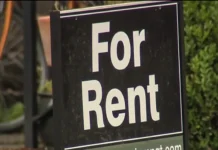
The Portland Housing Bureau (PHB) recently received a $7 million grant from the U.S. Department of Housing and Urban Development (HUD) to eliminate lead hazards in the homes of low-income homeowners and renters in Portland, with a focus on families with children under six. The grant also includes an additional $750,000 to address other health and safety hazards, such as radon.
This funding will significantly expand PHB’s current lead remediation and home repair programs, which are managed by the Neighborhood Housing Preservation (NHP) team. Currently, these programs serve an average of 31 households per year, but with the new HUD funding, they are expected to assist 136 households over the next four years. The funds will also support the hiring of two new team members dedicated to lead remediation efforts.
“I am incredibly proud of our Neighborhood Housing Preservation team for their dedication to addressing health hazards for low-income Portlanders,” said PHB Director Helmi A. Hisserich. “Their successful application for this funding means improved health and safety for hundreds of children and adults in our most vulnerable communities.”
HUD’s grant is part of a broader national initiative to combat lead exposure in homes. The department recently announced over $420 million in grants across 32 states, the District of Columbia, and Puerto Rico, all aimed at removing lead hazards and improving housing safety. Portland’s share of the funding—$7.75 million in total—underscores the federal government’s commitment to addressing housing health hazards and protecting children from the harmful effects of lead.
“Addressing lead poisoning is a top priority at HUD,” said Acting Secretary Adrianne Todman. “HUD has partnered with communities across the country to reduce lead exposure, particularly for children. The awards announced here today will help with HUD’s continued commitment to creating housing that is safe.”
HUD’s announcement follows recent efforts by the Biden-Harris Administration to address lead hazards, including a rule requiring drinking water systems nationwide to replace lead service lines within 10 years. The Bipartisan Infrastructure Law has also allocated $2.6 billion for drinking water upgrades and lead pipe replacements.
Andrew Lofton, HUD Northwest Regional Administrator, highlighted the importance of the investment for Portland, saying, “Today’s significant investment of over $7.7 million to the City of Portland underscores our unwavering commitment to ensuring that every child has the right to grow up in a safe and healthy home. By eliminating lead hazards and empowering communities, we are not only protecting the health of our children but also paving the way for a brighter, healthier future for all families across America.”
Research has long shown that lead exposure can cause serious and permanent health issues, particularly in young children. It can affect the development of the central nervous system, leading to learning disabilities and behavioral problems. Pregnant women exposed to lead may face risks such as reduced fetal growth and preterm birth. For adults, lead exposure is linked to increased risks of high blood pressure, cardiovascular disease, and kidney damage.
The HUD grant awarded to Portland is part of the largest allocation ever provided through six HUD grant programs under the Office of Healthy Homes and Lead Hazard Control. The funding will allow local governments, housing agencies, public health organizations, and nonprofits to eliminate lead-based paint hazards and other safety issues in homes. This effort also supports the Biden-Harris Administration’s Justice40 Initiative, which seeks to ensure that 40 percent of the benefits from certain federal investments flow to disadvantaged communities.
Nationally, approximately 3.6 million households with children under six are exposed to lead hazards in their homes. To address this, HUD is awarding over $395 million to state and local governments under its Lead Hazard Reduction Program. This funding will help develop comprehensive programs to identify and remove lead-based paint hazards in eligible rental or owner-occupied homes, prioritizing the protection of young children.
In addition to these efforts, HUD is investing more than $13 million in its Lead Hazard Reduction Capacity Building Program, which aims to help local jurisdictions build the infrastructure needed to identify and control lead hazards in homes. The funding will also support two non-profit organizations through the Healthy Homes and Weatherization Cooperation Demonstration Program, which coordinates interventions to prevent lead exposure while improving energy efficiency and resilience against extreme weather events.















